They say the Baltic is Britain’s ‘coolest’ neighbourhood. So what is it doing opening a Boxpark?
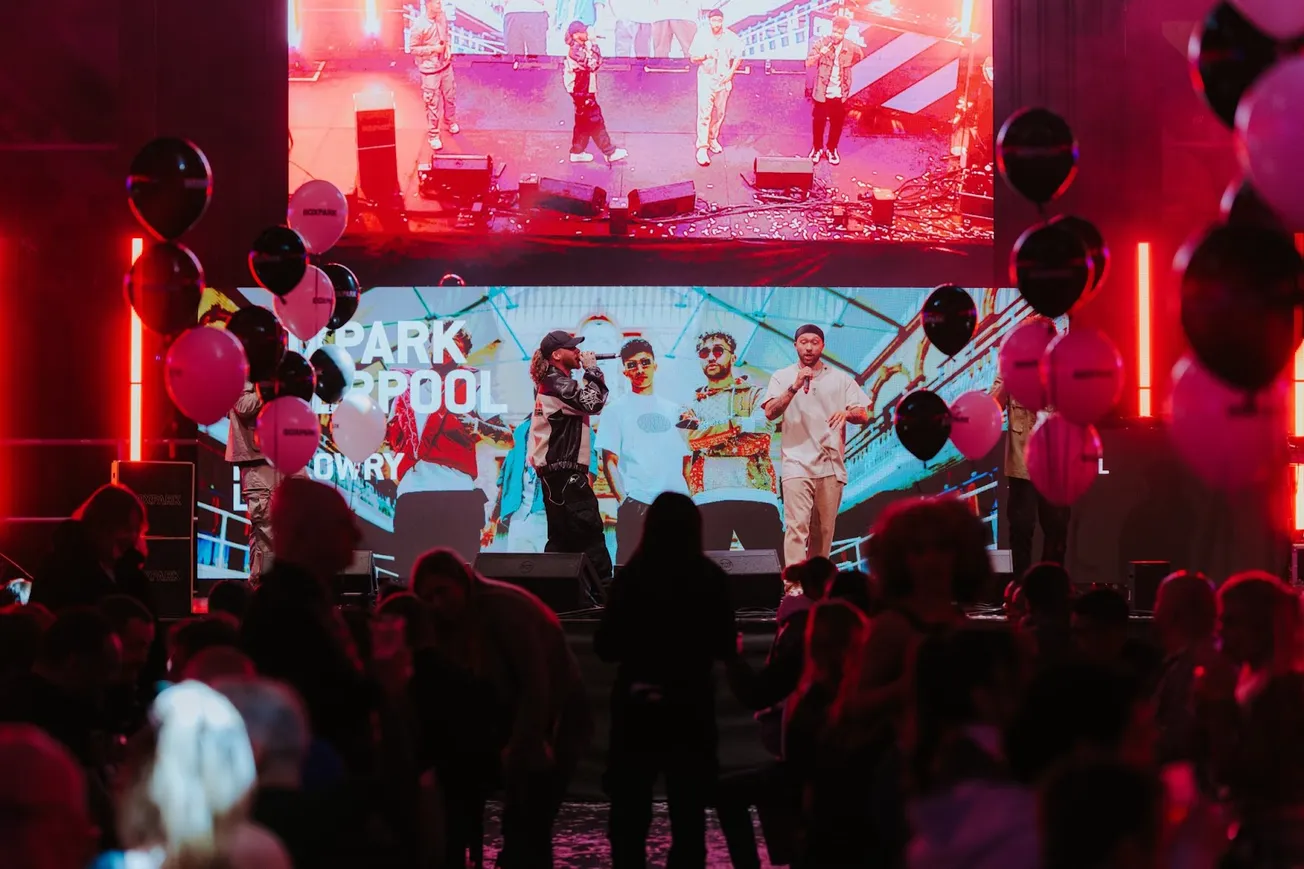
On shipping containers, getting lager in your hair and places that ‘just aren’t what they used to be’
When the Guardian wrote about the Baltic Triangle in 2016, the Birkenhead-born novelist Kevin Sampson found the perfect words to describe what it was that made the area so special. “You can put a mini-crawl together around the Baltic Triangle,” he mused, “without ever encountering a comedy penis.” That was eight years ago. Things have changed.
There’s a popular narrative that hangs over the Baltic. Quite a simple one too. It goes like this: the Baltic used to be cool, now it’s not. If you need evidence, look no further than the fact that Time Out magazine voted the Baltic the “Coolest Place” in the UK (and the 11th coolest in the world) last year. Nowhere cool has ever been voted cool in Time Out magazine. It wasn’t a good sign.
For the naysayers, irrefutable evidence of the Baltic’s tragic demise arrived last week, packaged up nicely in a box — a massive, zebra-striped box, one that cost £5 million. Last week, a Boxpark opened in the Baltic.
For the uninitiated, Boxpark is a chain of events venues that have become wildly popular in London. They’re associated with the heaving crowds which pack in during England matches, but they also host live music and dozens of food outlets. Its venues are made from gentrification’s staple building material: the repurposed shipping container. But while successful, many cruelly posit that there is something deeply uncouth, unchic, even philistine about a visit to Boxpark. To see one spring up in the UK’s official coolest neighbourhood has raised eyebrows.
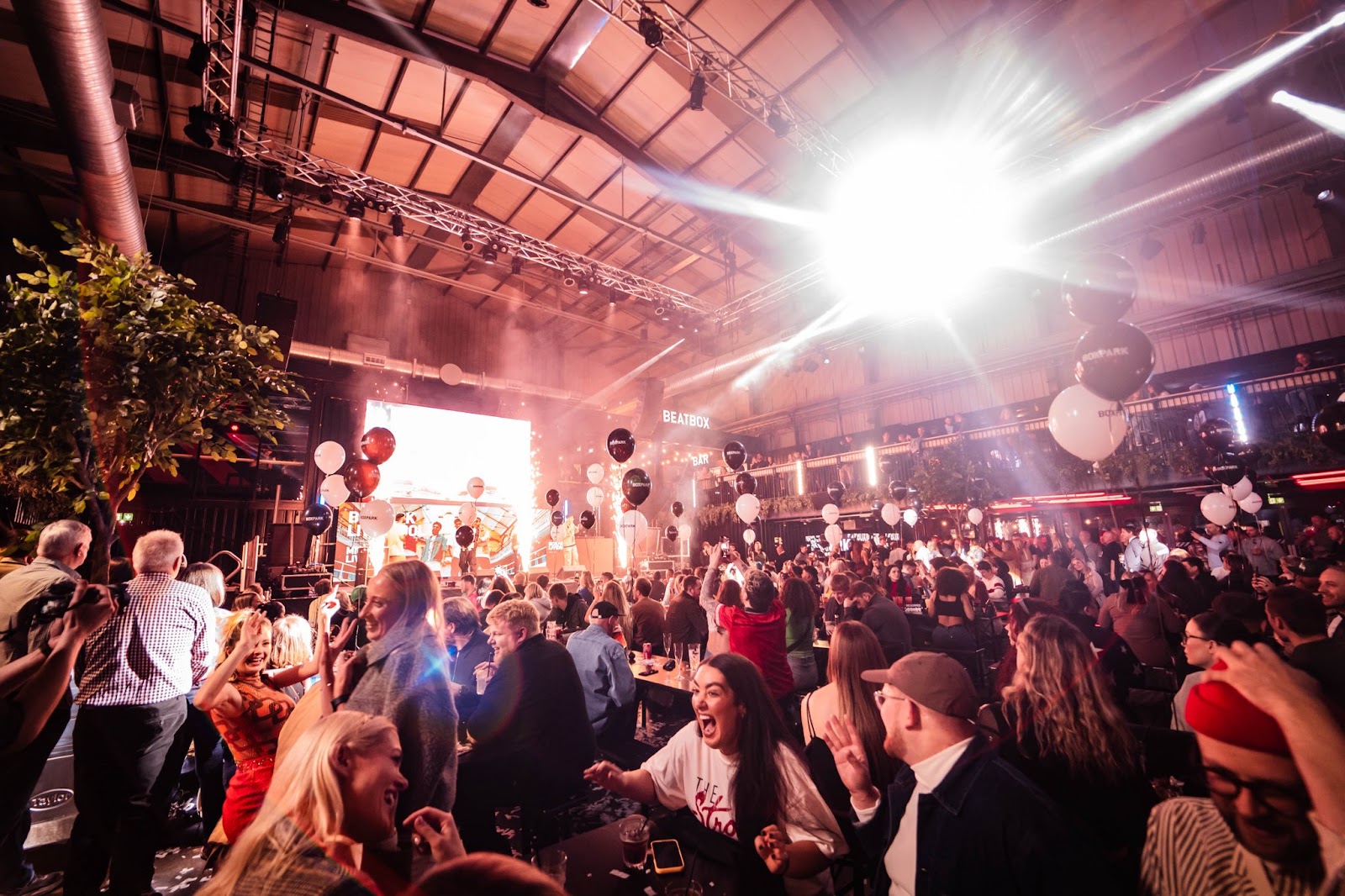
The comedy penises that Sampson was skillfully avoiding as he bar-hopped his way through the Baltic in 2016 are obvious symbols of the hen-crowd. Boxpark is the male equivalent of that: lager-slinging, Concert Square behaviour. One (of the many) derisory social media insults in response to the Liverpool venue opening suggested the only saving grace would be to “centralise all the nobheads in one place”.
Me personally? I would never be so uncharitable. And it’s a good job I’m so even-minded and non-judgemental, because on a visit to the Very First Boxpark Outside of London™ on Wednesday, I managed to walk away neither forcibly subjected to a baptism of lager nor quite as scarred as I had been warned I would be.
It’s Merseyside derby day, so I take a seat with two Reds; Mark and Ian. There’s been some online controversy, they explain. When Boxpark advertised the derby online, they did so using only a photo of Liverpool fans and tagged a Liverpool fan channel on Instagram. The Everton fans were furious, they explain, laughing (Everton fans have since had their revenge by leaving loads of terrible Google Reviews).
Mark has never been in a Boxpark before. When I ask him my pre-prepared Boxpark questions, I get a slight feeling that he doesn’t really understand why I’d come to a drinking venue on a Wednesday to ask about the symbolic ramifications of said venue in the neighbourhood in which it sits. If Boxpark is uncool, then I must be whatever two rungs below that is. But he’s polite and says he expects it’ll be “a solid night out”. Writing these stories, you sometimes get this strange collision between what you’re doing (attempting to eke out a narrative, where conflict is essential to examine themes and to craft a story) and what they’re doing (watching football with a pint at a bar).
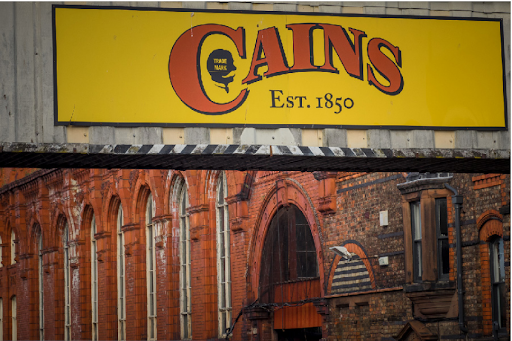
Ian visited the Boxpark in Croydon a couple of years ago and thought it was fun. “Obviously it’s — you know, it’s Boxpark isn’t it?” he laughs. This appears to be some kind of code. “It is what it is, but it’s a laugh.” I think what he’s trying to say is there’s a certain in-built irony which comes with going to Boxpark. Like adults doing a genuinely fun activity like bowling, ironically. Or middle class people holidaying in Benidorm, probably a perfectly pleasant destination, but doing it in an ironic way.
And what’s wrong with any of that? There’s absolutely no reason why drinking six pints of lager and standing on a table shouldn’t be fun. Of course it’s fun! Boxpark’s brand was bolstered during England’s successful runs at the 2018 World Cup and the 2020 Euros; footage of fans celebrating at Boxpark became a genuinely significant part of those tournaments’ iconography. Those shots were genuinely joyous and seemed to succinctly capture these rare moments of national unity. But the issue people are taking (at least online) is that these images — bear-hugs, lager-slinging, scenes of national pride — just aren’t the Baltic.
In many ways, the popular Baltic narrative is one that can be applied to a thousand places the country over. In 2008 — after years of neglect — the Baltic area was down and out. It barely had streetlights. A group of organisations (Merseyside ACME, Liverpool Vision, Liverpool City Council and the North West Development Agency) set up a Community Interest Company (CIC) to lead the way. Soon, upstart independents moved in — the rents were cheap, the place got cool. Developers noticed. Cheaply constructed flats started popping up. People grappled with questions about the Baltic’s “soul” (see below). There was some grassroots pushback, but ultimately the developers won. Lots of the coolest places moved out. Others stayed. It’s still seen as a good place to live, but people will wistfully tell you that it “isn’t the same” anymore. “I’m just glad I got to see it at the start,” the people will say of their lost El Dorado. “It was magic.”
It’s hard to pinpoint when the murmurings of discontent first sounded. Perhaps it was in 2017, when the Peaky Blinders-themed bar opened in Cains Brewery village. Or was it in 2018, when the Echo were reporting on a “battle” for the Baltic’s soul? “It now faces a familiar battle between maintaining its creative edge and pressure from developers looking to capitalise on its desirability and proximity to the city centre,” the paper wrote. In 2019 they were reporting on a new “masterplace” to “save the soul” of the Baltic from developers. But the masterplace evidently wasn’t masterful enough, because in 2020 those pesky developers forced out one of the area’s best-loved institutions, Melodic Distraction, who had studio space in the Baltic.
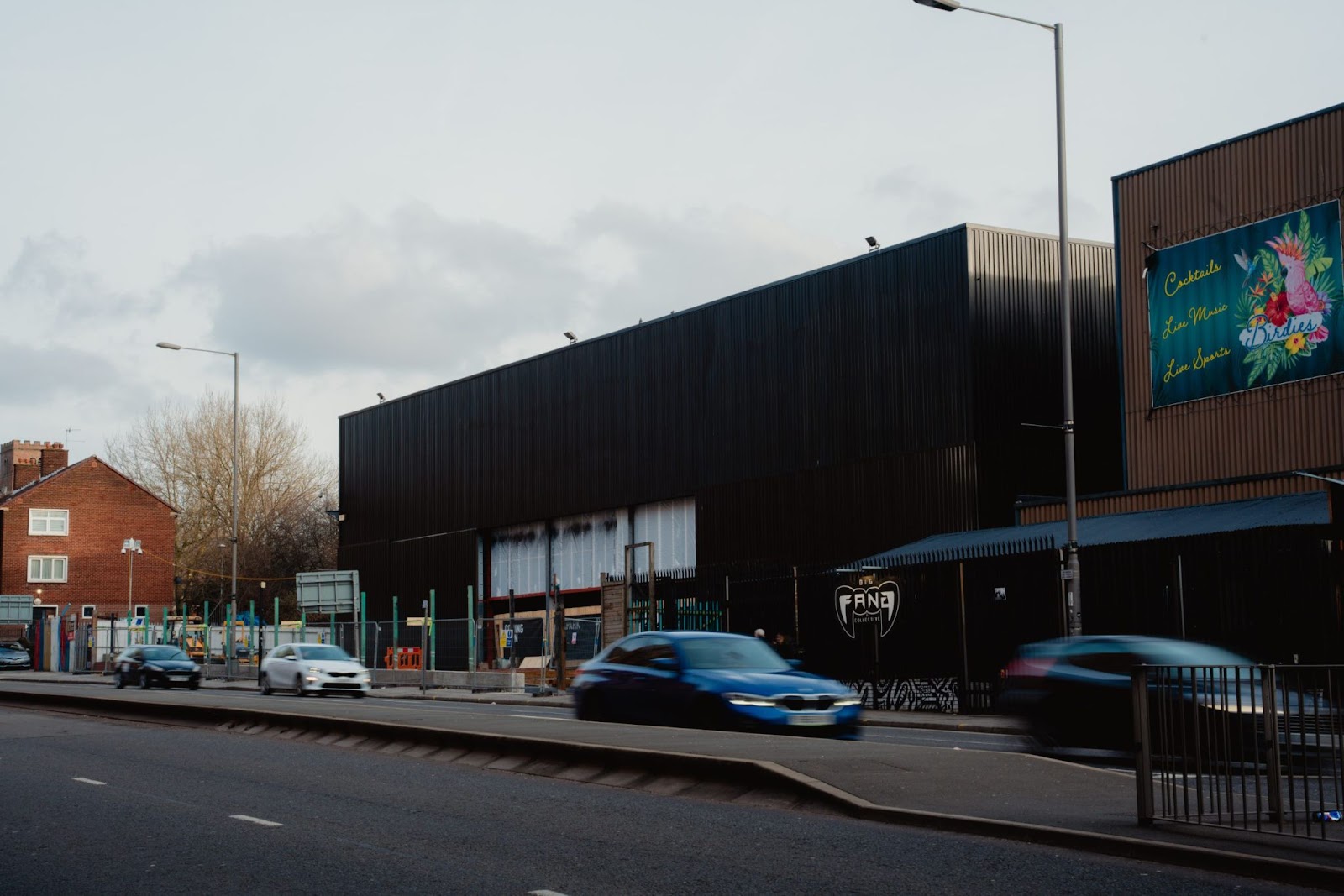
But for all the idealists, there are also Baltic pragmatists. Is Boxpark the cutting edge of cool? No, obviously not. Even the folk at Time Out could probably clock that. But it is 150 jobs, a big name brand choosing Liverpool as its first location outside of London, an injection of “life” into an area that for parts of the week is still often pretty quiet.
Indeed, those actually working in the Baltic have far more practical concerns than battles for souls. For example: the desperate need for the long-expected Baltic train station. Or: the fact that many of the venues in the Cains Brewery Village are only open Wednesday to Saturday, so for the seven-day-a-weekers, things can get a little quiet. According to Tom, who runs Arts Bar Baltic, another venue which is open every day, this is a real positive to the Boxpark opening. It isn’t necessarily that his bar will benefit directly from the customers brought to the area by Boxpark — the clientele of the two are quite different — it’s simply that it’ll be nice to see an injection of life to the area on the days when many venues are closed.
Tom also thinks there’s a misplaced assumption people will abandon the Baltic Market (which is next door to Boxpark and also a food hall), which is driving some of the online discontent. He posits that on the ground, the response has been much more positive. His view is that the people here are loyal to the independents that built the place. “People will stick by it,” he says. “They can both exist”.
When we stopped by earlier in the week, the owners of the Baltic Market wouldn’t be drawn on talking about their new neighbours, but this particular concern was the one raised by some of our readers when we asked for their views on Boxpark. One wrote in to say they felt Sangare Bros. (the owners of the Brewery Village) had “chopped businesses off at the knuckle, no matter what those businesses have done for them in making the overall site a success”. The reader went on: “Tragic greedy capitalism. May they choke on it.”
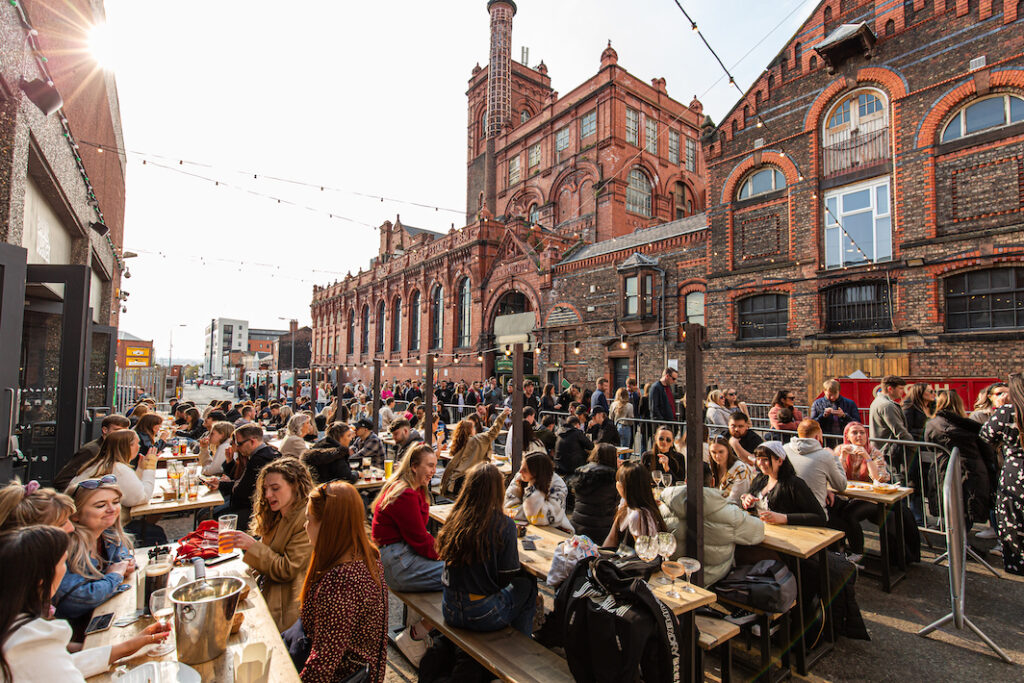
Peter Hunter (Pedro to many), a member of the Baltic Creative CIC, notes the concerns that have been raised over Baltic Market, but thinks that when considering the effect the venue will have on the area, you can’t just think about the movement of customers in an entirely localised way. He thinks the arrival will see “more people coming into the city centre — people will actually travel to it, it is a brand. It isn’t just something as small as what is the effect of this on something over the road”.
Perhaps the more pertinent question with the Baltic is whether the expansion of the leisure offer — creating largely low wage jobs — and residential properties, has been at the expense of the creative businesses that made the Baltic’s brand. Very little creative business space has been created in the past few years — which has prompted some to move out in order to grow (Wushu Studios and Ripstone Games, to name two). On one level it’s great that they’ve expanded to such a size they feel the need to do this, on another level the Baltic risks losing its clustering effect, which is great for economic growth. If that happens, it risks becoming (another) part of the city reliant on the stag and hen crowd.
Back at Boxpark, Mark and Ian tell me they wouldn’t usually come out in the Baltic at all. Concert Square is the centre of their personal orbits: “More life” is the reason. Though “town” in general is on the slide, and “has been for a few years now mate”. And what do they think of the journey that the Baltic has taken in that time? “To be honest, I don’t,” Ian says. Which is fair.
I think better of posing the gentrification question to my new friends in the Boxpark. Fielding questions about such things on a night out is bad enough. Having just watched your team conclusively crash out of the title race is torture. I resign myself to this fact and instead pretend to be an expert in the tactical manoeuvring of Feyenoord manager (and rumoured next Liverpool manager) Arne Slot.
Pedro has been in the Baltic for nine years. When he first applied for a licence, the council wouldn’t let his company use glasses made of actual glass, he says. Nor were there working lampposts on the street. He’s seen the dark days, literally. So when a big venue moves in, he’s hardly going to start complaining. “It makes us bigger, it appeals to more people, more going on,” he says.
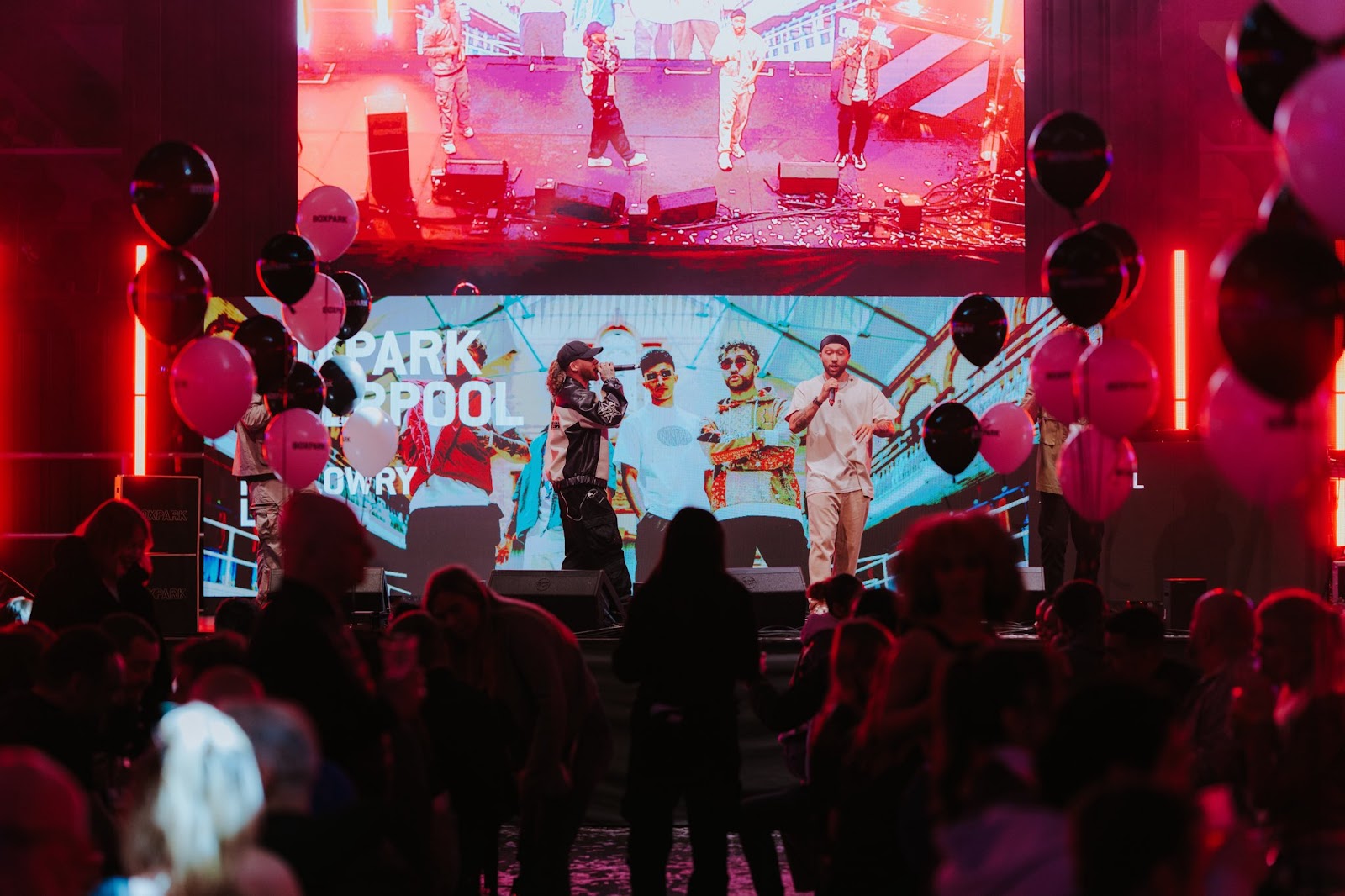
As Pedro tells me, these things move in “cycles”. His belief is that the type of artistic movement that built the Baltic in the first place is “always transient”. That loss of the cutting edge seems inevitable, because if the Baltic was still really as cool as the writers of Time Out would tell you, then the writers of Time Out probably wouldn’t have heard of it. It’s time-limited almost by design.
While the Baltic’s declaration as UK Capital of Cool may be greatly exaggerated, for those remaining here, so too are the reports of its death. What it is — and remains — is a place that lots of people want to live in. The local population has more than doubled here in just over 10 years. It’s a place that’s bringing people into the city, and bringing their money in with them. It’s home to some of the city’s more interesting businesses. By any measure, it’s a success story. Boxpark wouldn’t have given it a second glance otherwise.
Because before it was cool, it was a wasteland. And now, while it may no longer be cool, it certainly isn’t a dump. Now the comedy cocks have landed, the artistic types have run off and do it again, because — as Pedro says — that’s the cycle.
Ten Streets, everyone says, is next up. But in Time (Out), Ten Streets may one day be hailed as the English capital of cool. Then a massive Brewdog with a ball pit will open on the north docks. After that, who knows? Maybe the Fabric District will have its day. Or maybe it’ll be some pile of rubble, some miserable little nook no one gives a second glance at the moment. And for a fleeting moment — before the comedy cocks arrive — it’ll be magic.

Comments
Latest
Is Liverpool resting on its laurels?
From Hoylake to St Helens, community cinema is making a comeback
Millions of tonnes of greenhouse gas to be piped under Liverpool Bay
The unexpected auction: A London fund manager is selling Merseyside homes from under their tenants
They say the Baltic is Britain’s ‘coolest’ neighbourhood. So what is it doing opening a Boxpark?
On shipping containers, getting lager in your hair and places that ‘just aren’t what they used to be’